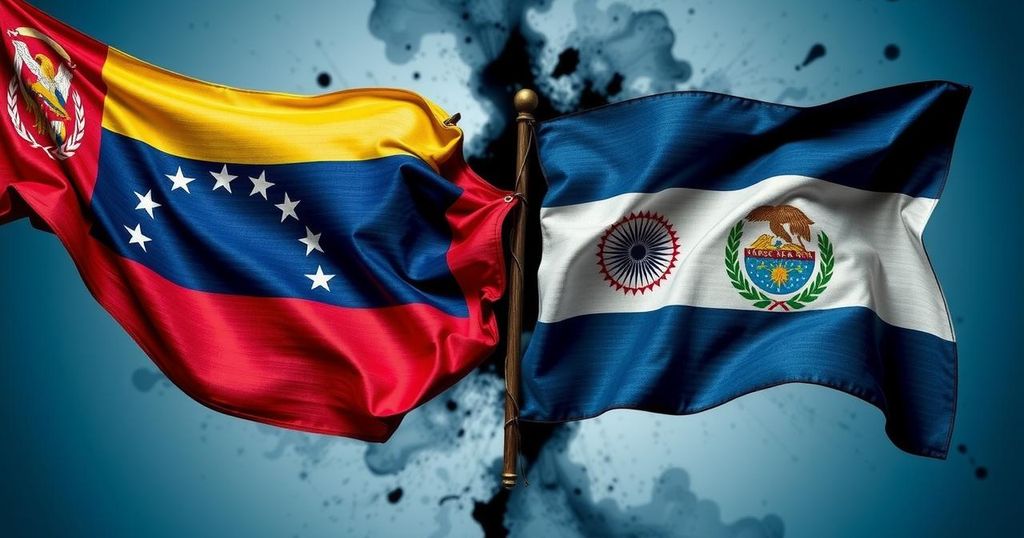Venezuela charged Argentine officer Nahuel Gallo with terrorism, accusing him of collaboration with international far-right groups. The incident has heightened diplomatic tensions following Argentina’s refusal to recognize Venezuela’s recent elections. Gallo’s detention occurred during his visit to Venezuela, which his family asserts was for vacation purposes. Amidst this backdrop, five Argentine opposition activists are under threat within their embassy, facing potential expulsion as relations sour further.
Venezuela’s attorney general, Tarek William Saab, announced on Friday that Nahuel Gallo, an Argentine military officer who was apprehended earlier this month, faces charges of terrorism. Saab alleged that Gallo was linked to a group attempting to execute subversive acts within Venezuela with backing from international far-right organizations. In response, Argentine Security Minister Patricia Bullrich denounced these accusations as baseless, asserting that Gallo should be promptly returned to Argentina.
The incident has exacerbated tensions between Venezuela’s leftist government and the right-leaning administration of Argentine President Javier Milei, particularly since the Argentine embassy in Caracas is currently encircled by Venezuelan security forces and providing refuge to five opposition activists. Gallo was detained after he arrived at an immigration office on Venezuela’s Colombian border seeking to enter the country, claiming he was visiting his wife who is Venezuelan. His family maintains that he was on vacation, supported by an invitation letter that was sent to Gallo shortly before his arrest.
Following a diplomatic breakdown in August due to Milei’s government refusal to recognize the recent re-election of Venezuela’s President Nicolás Maduro, diplomatic relations have remained strained. Argentine diplomats were expelled, while the opposition activists have been trapped in the embassy since March, expressing concerns that Venezuelan authorities have been trying to force them out by cutting off essential services like electricity and water. Venezuelan officials have countered these claims, alleging the activists conspired to plan terrorist activities from within the embassy.
Additionally, the Venezuelan human rights organization Foro Penal reported that nineteen foreign nationals are currently detained under politically motivated charges. Earlier in September, two Spanish citizens were similarly arrested, accused of involvement in plots against President Maduro, occurring shortly after Spain’s parliament acknowledged an opposition candidate as the winner of recent elections.
The diplomatic relationship between Venezuela and Argentina has progressively deteriorated, especially following the election of President Javier Milei in Argentina. Venezuela’s allegations against Nahuel Gallo highlight a broader context of tension, wherein Venezuela’s administration has increasingly accused foreign nationals of terrorism as part of its narrative that portrays its dissenters as threats to national security. The arrest also reflects the Venezuelan government’s attempts to exert control and retain authority amidst ongoing political unrest and international scrutiny on its human rights practices.
In conclusion, the accusations against Argentine officer Nahuel Gallo for terrorism underscore a significant escalation in diplomatic tensions between Venezuela and Argentina. As Venezuela’s government seeks to consolidate power and control dissent, the incident illustrates the ongoing instability within the region. The plight of opposition activists within the Argentine embassy further complicates the situation, indicating the dire state of human rights and political freedoms in Venezuela.
Original Source: abcnews.go.com






